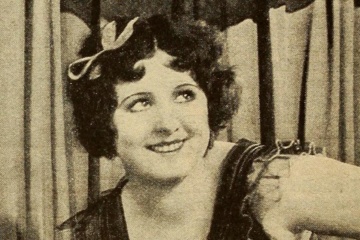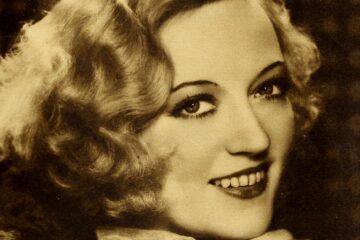
Proof That It’s Pre-Code
- Sleazy louse seducing his way through a mansion, both upstairs and down
- Extramarital affairs like crazy
- Attempted rape (I actually typed “attempted rap” in my notes, so I may just be remembering this wrong)
- The villain suffers no comeuppance and learns nothing
 I’ve written about Rudolph Valentino for this site once before, and I guess it’s my turn with the other silent film romance king, John Gilbert. I won’t lie and pretend that I’m intimately familiar with Gilbert (I’ve seen bits of The Flesh and The Devil but never the whole thing), but his importance as a matinee idol is striking compared to his role in Downstairs, even moreso once you realize he wrote the story the film is based on.
I’ve written about Rudolph Valentino for this site once before, and I guess it’s my turn with the other silent film romance king, John Gilbert. I won’t lie and pretend that I’m intimately familiar with Gilbert (I’ve seen bits of The Flesh and The Devil but never the whole thing), but his importance as a matinee idol is striking compared to his role in Downstairs, even moreso once you realize he wrote the story the film is based on.
This is remarkable in some ways because Gilbert plays the film’s horrendously unappealing and thoroughly contemptible scoundrel, Karl. He shows up in time for the wedding of the head butler, Albert, and the head maid, Anna, and with just enough time to make some nice little eyes at the bride.
Downstairs reminds me a lot of Gosford Park, Robert Altman’s film from earlier this century about a murder mystery set in a divided English manor. Both movies take more interest in the servants than the bumbling barons and baronesses, and both contain a kernel of resentful sadness about the world all of these characters are most assuredly trapped in.
Not that I can blame them for that feeling.

Pushing people around for fun and money.
Karl’s arrival throws things out of sync, though. What murder is to Gosford Park, seduction is for Downstairs. Karl’s affairs, which take him from the baroness to the old cook to Anna, leave nothing but an emotional wake of anger and sadness. The baroness does hers on a whim, and soon finds herself blackmailed, while the cook is cheated out of her money, and the blushing bride finds yet another reason to blush.
The main meat of the movie is between Albert and Anna, as Anna resists Karl forcefully until a bottle of wine changes her mind. Albert is furious, but, in a welcome move, the movie let’s her have her own side. She angrily explains to him that there’s two types of making love, and Albert isn’t exactly the fiery, passionate type she’s always heard so much about.
Anna comes to her senses pretty soon, and Karl’s enough to put anyone off after a bit. Karl’s not the type who takes no for an answer, and he and Albert are soon led to blows. This leads to one of the more telling scenes in the film, as Albert begins to strangle Karl when the house’s comes down the stairs and tells him to stop. The baron knows nothing of what’s going on, he simply tells them to stop and Albert must comply.

It’s good to be the chauffer.
There’s some interesting class conflicts demonstrated, but Downstairs doesn’t have much else going for it. My main beef (and/or beefs) with Downstairs comes from the utter lack of tension. The ‘sleeping their way to the top’ story is told with more relish and sauce in Red Headed Woman (which came out the same year) and here it never really goes anywhere deeper or more pointed, outside of Anna’s brief explanation of the degrees of passion.
It often plays like the serious version of a Lubitsch flick, and, in the end, no one really seems to learn anything except poor Anna, who realizes not to trust the snakes of the world. It’s too bad it doesn’t take a deeper look at its situation.
Gilbert playing so completely against type and by his own choice is a defiant and telling one; the man died three years later of alcoholism. Seeing him here going from a great lover to a rapist madman can either be seen as a sign of daring or the last desperate hope for artistic glory. He’s great in the film, it’s just too bad that his life is much more interesting than much of anything here.



2 Comments
Vidor · December 9, 2020 at 12:26 am
The particular tragedy about Gilbert is that he was actually a great actor, as this movie shows. Maybe he doesn’t remain a star, but if he hadn’t drank himself to death he could have had a good second act as a character actor.
Who came out of the talkies as big a star as they were before? Garbo. Ronald Colman. Norma Shearer, but she was married to the head of MGM. That’s about it, isn’t it? Crawford if you want to stretch the point as she was *just* hitting it big at the end of the silent age.
Comments are closed.